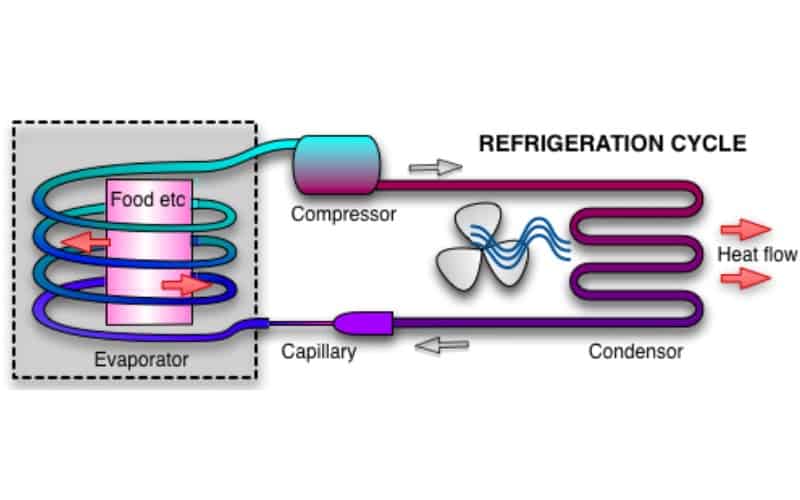When the hot summer sun beats down, air conditioning units are our best allies, providing the needed respite by transforming sweltering air into a refreshing breeze. However, the efficiency of these systems hinges on their components functioning properly, including the often-overlooked compressor. If you’ve noticed that your AC compressor is hot to the touch, it’s essential to understand what this means for your system and what actionable steps you should consider.
Understanding the Compressor’s Role
Before delving into the implications of a hot compressor, let’s illuminate its fundamental function within the air conditioning system. The compressor acts as the heart of the HVAC system, responsible for circulating refrigerant through the system and compressing it to a high-pressure gas. This process kicks off the cycle of cooling air, crucial for maintaining a comfortable indoor environment. When the compressor works efficiently, the system cools reliably. But what occurs when it runs excessively hot?
Signs of an Overheating Compressor
A hot compressor isn’t necessarily an immediate cause for alarm, as some heat is part of the normal operation of these devices. However, a compressor that feels excessively hot can indicate underlying issues. Some telltale signs include:
- Inconsistent cooling: If your home feels warmer even when the AC is running, it may signal inadequate refrigerant flow due to compressor inefficiency.
- Unusual noises: Strange sounds, such as rattling or buzzing, can indicate that the compressor is struggling to function as it should.
- Frequent cycling: If your system starts and stops more than usual, it may suggest that the compressor is working too hard to maintain cooling.
- Tripped circuit breakers: Excessive heat can lead to overload, causing the electrical system to shut down to protect itself.
Common Causes of a Hot Compressor
Several factors can contribute to an overheating compressor, and understanding these can guide you in troubleshooting the issue effectively:
- Insufficient Refrigerant: A system low on refrigerant can force the compressor to work harder, leading to higher temperatures. This could result from leaks or improper charging during installation.
- Dirty Coils: Over time, dust and debris can accumulate on the condenser and evaporator coils. When they’re dirty, heat exchange efficiency diminishes, forcing the compressor to operate longer and harder.
- Faulty Components: Worn-out or malfunctioning components such as the expansion valve can disrupt refrigerant flow, placing undue stress on the compressor.
- Poor Airflow: Blocked or restricted airflow due to dirty filters or closed vents can cause the compressor to overheat as the unit struggles to maintain desired temperatures.
Assessing the Situation: Should You Be Concerned?
While some heat is normal, a compressor that is excessively hot to the touch indicates that intervention may be necessary. Ignoring this symptom could lead to more significant problems, such as complete system failure. It’s essential to gauge the level of heat:
- If the compressor is hot but still functioning, it may just need some maintenance attention.
- If it is unbearably hot and you’re noticing other symptoms, immediate action is warranted. A prolonged issue can lead to compressor burnout, costing you significantly in repairs or replacement.
Maintenance Tips to Prevent Overheating
Regular maintenance is crucial in ensuring that your air conditioning unit is operating smoothly. Here are proactive steps you can take:
- Schedule Regular Inspections: Annual maintenance checks by professionals can help identify potential issues before they escalate.
- Clean or Replace Filters: Keep air filters clean as they directly affect airflow. Replace them monthly or as recommended based on usage.
- Clean Coils: Periodically inspect and clean the coils, ensuring that they are free from dirt and debris. This not only assists in heat exchange but improves energy efficiency.
- Ensure Proper Insulation: Proper insulation and sealing of ducts can help maintain optimal temperature in your home, reducing the workload on your compressor.
When to Call a Professional
Recognizing when to engage a professional is vital. If you’ve performed basic maintenance and the compressor continues to exhibit excessive heat, it’s time to call in an HVAC technician. They can conduct a comprehensive diagnostic to identify faults, fix refrigerant leaks, and assess the condition of other essential components. Remember, attempting to resolve complex issues without expertise can lead to further damage.
Conclusion: Stay Cool
In conclusion, a hot AC compressor can signify both normal operation and potential distress within your cooling system. By remaining vigilant and responsive to the signs of trouble, you can safeguard your investment and ensure that your air conditioning unit remains a reliable companion against the summer heat. Regular maintenance combined with prompt action during alarming signs will lead to the longevity of your system, allowing you to enjoy a cooler, more comfortable home for years to come.
